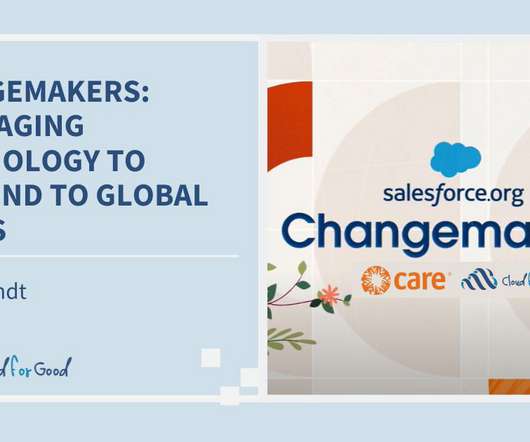Can love change the world? I hope so!
Amy Sample Ward
MAY 3, 2011
Regardless of what work you are doing – campaigning for political change, providing services to your local community, educating others, or anything else – would it look different, would it feel different, would it operate differently if love was the central message? To Mama With Love. I see this lesson in the work of 350.org.












Let's personalize your content